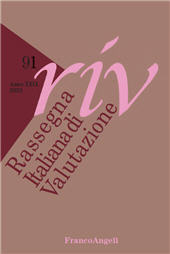Valutare il cambiamento nella cooperazione allo sviluppo : il rapporto tra valutatore e committente tra programmazione e attuazione
48-67 p.
Evaluating cooperation programs entails ensuring transparency and accountability, learning from best practices, improving future project quality, and, in general, it implies assisting policy makers' decisions. Assuming that development cooperation "qualifies" foreign policy, impact evaluation shall be integrated into decision-making processes. In this context, the Theory of Change (ToC) emerges as complementary with regard to Result-Based Management approach. While ToC provides a context and a causal map for better understanding the process of change, RBM translates ideas into concrete actions and measurable indicators. The need for measuring results arises from the necessity to justify the allocation of public financial resources in an efficient manner. In addition, evaluating the impact of a taken initiative becomes crucial in order to define future strategic planning. Thus, evaluation, without willing to replace "Politics", aims at assisting the latter to adopt "informed" decisions. [Publisher's Text].
-
Articles from the same issue (available individually)
-
Information
ISSN: 1972-5027
DISCIPLINES
KEYWORDS
- cooperation, evaluation, impact, policy makers, ToC, resultbased management


